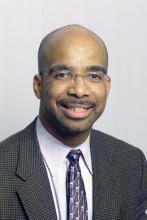The intervention group also showed an absolute decrease of 2.5 mm Hg in systolic blood pressure compared with the control group, a secondary outcome of borderline significance, the investigators said (Arch. Intern. Med. 2010 Oct. 25 [doi:10.1001/archinternmed.2010.390]).
“Thus, the results of this study provide the first evidence for the effectiveness of a barber-based intervention for controlling hypertension in black men,” they added.
Dr. Clyde W. Yancy of Baylor Heart and Vascular Institute, Dallas, said that using barbershops to convey meaningful health messages and conduct health screening appears to work, given that this intervention achieved a nearly 20% improvement in hypertension control compared with baseline, said.
But there is a greater question, he asserted: “Why must we resort to a community-driven approach that abdicates the responsibility to detect disease and institute preemptive care to well-intentioned, appropriately trained, but nonetheless clinically naive health care providers?”
The implication is that providers have collectively failed to provide adequate fundamental health information – a core foundational element in the practice of medicine. Since the study subjects were largely middle-income men with health insurance coverage, “access to care cannot be invoked as an excuse,” Dr. Yancy said.
Given the men’s ready access to conventional health care, it is “remarkable” that they did not have adequate detection and control of their hypertension, he commented.
“This finding is a cause for great concern because it indicates that simply providing better access to health care does not necessarily result in the delivery of better health care,” added Dr. Yancy, who reported (Arch. Intern. Med. 2010 Oct. 25 [doi:10.1001/archinternmed.2010.404]).
The National Heart, Lung, and Blood Institute, Donald W. Reynolds Foundation, the Aetna Foundation Regional Health Disparity Program, Pfizer, Biovail, Cedars-Sinai Heart Institute, the Lincy Foundation, and the Robert Wood Johnson Foundation supported the trial. Dr. Victor reported ties to Pfizer and Biovail. Dr. Yancy reported no financial conflicts of interests.

